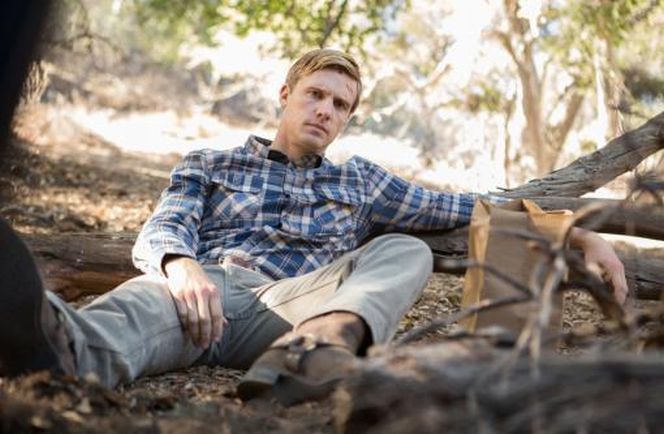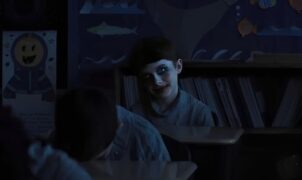MOVIE REVIEW – Recently released on Netflix in 2015, Curve is a psychological thriller that follows the struggles of an engaged woman when faced with a menacing stranger. Through the character of Mallory, the filmmakers attempt to imbue this fairly straightforward thriller with deeper meaning as we observe the eternal struggle between trust and suspicion, instinct and reason. While “Curve” attempts to take us into the deep recesses of the human psyche through its antagonist, it ultimately fails in this endeavor, thriving more as a conventional survival horror and thriller.
“Die Hard draws its immortal energy from a manic flight from mundane marital discord to hyperbolic apocalyptic fantasy. John McClane’s marital problems stem from his wife’s professional success. Instead of addressing this, the plot turns to an improbable terrorist attack in which her boss is brutally murdered and John emerges as an astonishing action hero, triumphing over the foreigners bent on destroying the American way of life. The film’s exuberant tone stems from its reluctance to embrace its core narrative; its action sequences bristle with fervor as they distract from the underlying grim drama.
Enter Mallory Rutledge instead of John McClane
The thrilling “Curve” emulates a similar narrative dynamic. Mallory Rutledge (Julianna Hough) is driving her fiancé Brad’s truck from San Francisco to Denver, where they are planning their wedding. Despite the joyful anticipation of the event, tensions arise. Brad abruptly cancels their Italian honeymoon due to an unforeseen work crisis. Mallory’s beloved sister Ella (Penelope Mitchell) thinks the whole wedding is misguided. Mallory keeps choosing scenic routes to Denver, seemingly delaying their arrival. As if these problems weren’t enough, flyers found in the truck indicate that Brad has been visiting strip clubs and possibly escort services. Rather than being shocked by her discovery, Mallory simply feels disgusted.
The movie begins by dissecting Mallory and Brad’s relationship, culminating in the realization of her grave miscalculation. However, director Iain Softley takes an unexpected “bend” in the narrative. Just as Mallory stumbles across the incriminating flyers, her car breaks down. An imposing, handsome hiker, Christian (Teddy Sears), offers to help. After some hesitation, she decides to go with him, feeling guilty for leaving him stranded, first on the highway and then at her motel.
One Shade of Grey
Of course, Christian is not the altruistic man he initially appears to be. Threatening Mallory with a knife, he hints at his intention to attack her at the motel. When she notices that Christian isn’t wearing a seatbelt, she crashes the car, hoping the impact will kill him. Amazingly, and somewhat implausibly, he is ejected from the vehicle unharmed, while Mallory’s leg is pinned under the seat. Stranded for days, she desperately forages for food and water. Christian returns periodically, taunting her and awaiting her demise.
Christian undeniably emerges as Brad’s evil doppelganger. His demeanor shifts from seemingly sincere to crudely telling Mallory that he doubts her ability to “take his massive tool deep in her mouth. This vulgar comment indirectly alludes to the sexually explicit flyers Brad left behind. Christian also obsessively discusses human free will and the inevitable consequences of choices. He is convinced that Mallory brought this ordeal on herself. He darkly states, “People live their lives through a series of choices, many thinking they have no consequences. I’m here to show that there are.”
At the same time, he rambles on about fate intertwining their paths, suggesting a deeper meaning. These musings echo romantic notions from Hollywood romances. They speak of love being predestined and yet the most genuine choice. Christian cynically suggests that Mallory’s choices, or perhaps fate, landed her in this terrible ordeal, just as her choices, or fate, anchored her to Brad for life.
That curve isn’t quite sharp…
Without giving away any spoilers, the climax delivers a predictably formulaic confrontation seen in many thrillers and horrors. While the extensive middle section of the movie, which focuses solely on Mallory and her stranded vehicle, provides a compellingly confined setting, the climax, while somewhat “liberating,” fails to return to the initial issue raised – Mallory’s impending marriage. In her stranded state, Mallory pens a note expressing her love for Ella, conspicuously omitting Brad. Does this mean she’s calling off the wedding? That remains an unanswered question.
It’s perplexing how “Curve” could have authentically revisited the subject of weddings. Masterpieces like “Life at a High Price!” manage to weave family drama with a thread of suspense. Focusing on a woman caught in a dangerous situation, “Curve” offers a narrower scope. Mallory’s fight against the dangerous stranger is more about primal survival than deep-seated resentments or grudges. This doesn’t make the movie inferior, but “Curve” could have thrived had it ventured into bolder directions.
-BadSector –
Curve
Direction - 7.4
Actors - 7.4
Story - 6.6
Visuals/Music/Sounds/Action - 6.8
Ambience - 7.2
7.1
GOOD
"Curve" is a psychological thriller about a woman's dangerous encounter with a stranger on her way to her wedding. While it attempts to delve into deeper psychological themes, it falls short and works better as a straightforward thriller. The movie had more untapped potential with bolder twists.


















Leave a Reply